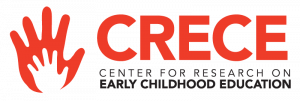Established by the Oklahoma State Legislature in 1998, the universal pre-K (UPK) program provides free, high-quality pre-K services to all four-year-old children irrespective of household income. Oklahoma was the second state to establish a UPK program, and its penetration rate – estimated at 74 percent – is one of the highest in the U.S. This project will examine the longer-term impacts of UPK. Students from the early cohorts of UPK are now in the later high school grades. We will examine whether or not attending UPK is related to longer-term success measured by high school course taking, graduation/drop out, and standardized test scores. This project will also examine if particular sub-groups of children benefited more from attending UPK. It will add to our growing understanding of the longer-term impacts of more modern early childhood education programs.
